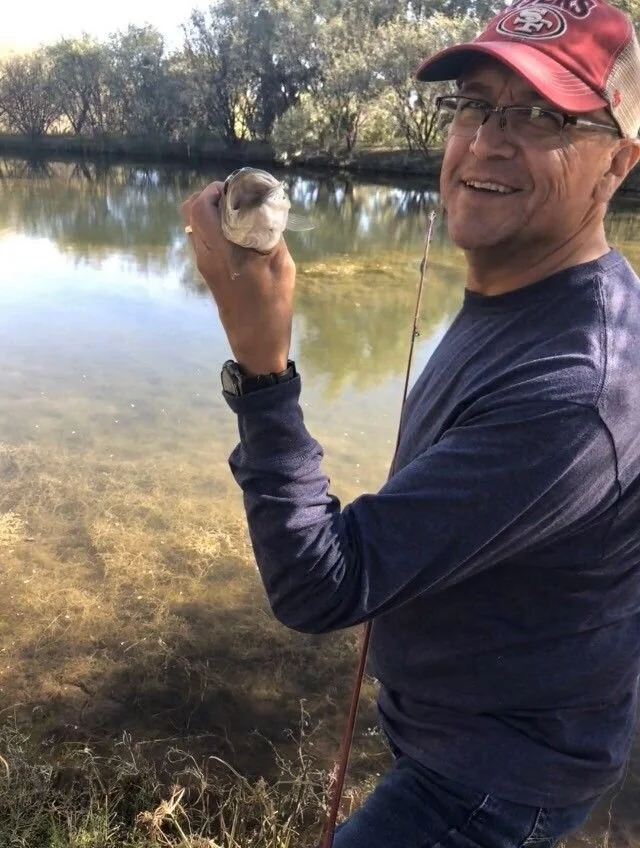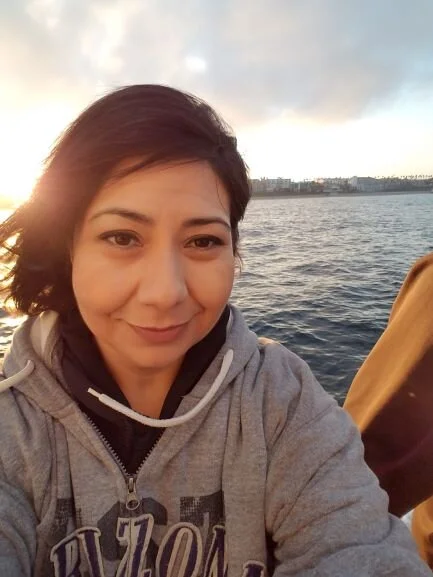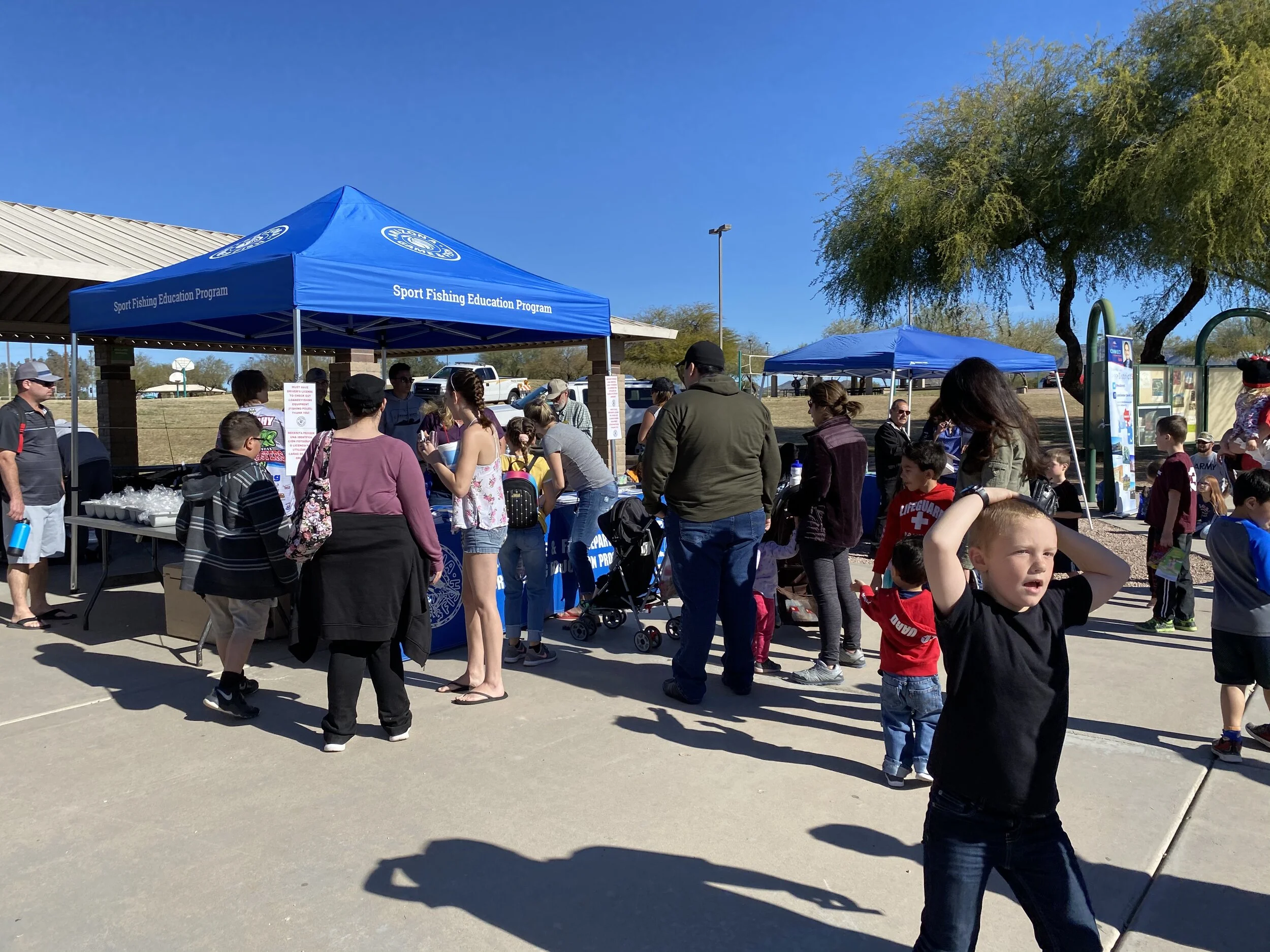Last week, Congresswoman Teresa Leger Fernández introduced the Cerro de la Olla Wilderness Establishment Act to the House of Representatives that would designate 13,103 acres within the Rio Grande del Norte National Monument in northern New Mexico as Cerro De La Olla Wilderness.
Read MoreAlbuquerque, New Mexico (December 27, 2020) -- Following the holiday at Petroglyph National Monument, a Navajo and Oneida man named Darrell House was repeatedly tased by a National Park Service ranger for stepping off-trail to maintain social distancing protocols when he noticed a crowd walking in his direction.
The site plays an important role for Indigenous people, and was designated after Native American activists sought to protect the stone carvings from vandalism and land development. House visited the national monument to pray before the petroglyphs, and to collect earth for ceremonies.
Read MoreNearly 25 people joined HECHO on Tuesday, December 15 for our Holiday Cocktails & Conservation event to hear stories of traditions rooted in our Hispano cultural connection to the land. Enjoying a demonstration of our event’s signature drink, Abuelita Hot Cocoa with Kahlua, participants also engaged in a conversation regarding special memories and traditions that take place for many Hispano people during the Christmas season.
A newly formed tradition for HECHO, Holiday Cocktails & Conservation opened dialogue for community members to share their own cultural traditions around the Holidays. Sisters Juliana and Theresa Huereña demonstrated their family recipe of mince-meat empanadas made of game meat from hunting and pinyons traditionally gathered from forest trees. Founding Board Member, Kent Salazar, shared his seasonal hunting tradition, and community member, Steve Peru shared a beautiful remembrance of his late mother and their special camping memories.
Read MoreSanta Fe, NM – Hispanics Enjoying Camping, Hunting, and the Outdoors (HECHO), in partnership with the Office of Assistant Speaker Ben Ray Luján, hosted a virtual event focusing on the ways in which agricultural and community stewardship can help mitigate and adapt to climate change, while highlighting traditional land-use practices though New Mexico’s traditional acequia and land grant communities.
Read MoreGrowing up in Douglas, Arizona is like having a foot in two worlds. Because it straddles the United States and Mexican border, my upbringing was unique in that I grew up on what I considered an international avenue – my favorite tienditas on one side, my family on the other, and then the desert, the saguaros, watching us all.
Living in a border town means understanding economic privilege from an early age. I recognized the divide that existed, and the role that politics played in our lives. I was painfully aware of the privileges that being a U.S. Citizen awarded me, and I questioned why my neighbors weren't able to experience what my family could.
Read MoreI live on four-acres of land next to the Coronado National Forest. I love living in the boondocks. When I’m home I sit outside and have a 360-degree view of nature. I listen to the birds and it clears my mind. It gives me solace to be out here by myself. It’s relaxing, but most of all, it’s inspirational.
Read MoreMy siblings and I spent our summers on the East side of New Mexico on my grandfather’s ranch. Our family called it La Garita. Those trips and my upbringing in southwest New Mexico gave me my first introduction to horses, and the beginning of a deep appreciation for the Gila National Forest that was almost in our backyard.
My mother was the eldest of 15 siblings, and she would often share with us what it was like growing up on the ranch, doing chores and pausing to take a break while my grandfather would break a watermelon on his knee for them all to share together. My family has always had a strong tie to the land, because as ranchers, nature is your livelihood…..
Read MoreMy family has a long history in the Pojoaque Valley of New Mexico. Both my mother and father’s side of the family has been a part of this county for generations, dating back to the early pre-Hispanic settlers in the area. Growing up in New Mexico, I was immersed in the traditional farming community and grew up with the ranchero lifestyle.
Read MoreI’m proud to be an 8th generation Arizonan. My family has traced our long history in Arizona back to the 1740s. Both my maternal and paternal grandparents were farmworkers, tending the fields. My father was a farmworker as well.
My family settled in Pima County after an uncle bought a plot of land and invited his brothers to join.
Arizona is what I know best. I was brought up in South Phoenix, and moved after gentrification pushed us out. Afterwards, my family moved to Golden Gate Barrio. I find comfort in familiarity and today, my children go to the same elementary school I did.
Read MoreHECHO (Hispanics Enjoying Camping Hunting and the Outdoors), in partnership with City of Mesa Councilmember David Luna, the Arizona Game & Fish Department, and the City of Mesa Parks and Recreation hosted the first Free Family Fishing Day of 2020 at Red Mountain Lake on February 1, 2020.
Read MoreI was born and raised in Pecos, New Mexico, where my family has been for several generations. I grew up eating deer meat and trout. Nature is what sustained me growing up. My father was a hunter and a fisherman, and we depended on that for our food source. We’d gather berries and pick piñon in the fall. Food gathering has always been really important to my family.
I still share the tradition of picking berries and making jelly with my family. My daughter asks me why we’re doing it since we still have leftover jelly from last year, but I tell her it’s about remembering grandma and her recipes and continuing the tradition. I want to teach my kids and grandkids about the foods that are edible in this area and how to identify them. That’s something that’s been part of my upbringing and something that’s always been important to me.
Read MoreI always went fishing with my grandfather and my uncles, Bernave Arellano and Virgil Lopez, who taught me how to catch trout. Both of my uncles were very respectful of the land and understood that it was important to leave it better than you found it.
Growing up in Salt Lake City, I always enjoyed the outdoors. The air felt so good to breathe and it seemed like the opportunities were endless. We were rather poor. My mother raised four kids by herself. We didn’t have a car for much of the time. When we got on the train to visit relatives, I always looked out the window at the open range where you could run fast and feel free.
Back then, my family hunted deer and elk. It’s important to realize that hunting and fishing are fun, but the best reason is to hunt to put food on the table. This is true for most Latinos. My family made jerky from the meat of the animals they killed. They would smoke the fish that we caught. Today, my relatives living in small towns in the Southwest still hunt for subsistence. A lot of these towns are food deserts and don’t have access to the best grocery stores. But through fishing and hunting you can still feed your family with good nutrition.
Read MoreThe land has always been our life. Our dedication is to the land. We’ve always depended on the land to survive. My family were farmers and ranchers. I spent most of my summers with my grandfather, and I continue his traditions. We own pieces of land, but I don’t feel like they’re ours, only ours to take care of while were here.
Read MoreRead the story of Rose Ann Contreras Atherton, whose second home is the outdoors - plus her favorite wild game green chili recipe! "Every Thursday night, like clockwork, my husband, son and I pack up our Fifth Wheel and prepare to head out into the woods the next day," she writes. "During hunting season, we drive a few hours away to our favorite spots looking for deer, elk, and wild turkey. I love the outdoors. I love the smell. I love that you can go for a walk for hours and you see something different every second. You don’t have to answer to anybody. I can’t even tell you the last time I stayed in a motel – it’s been years."
Read MoreWe have a very rich history and a very strong connection to the land. Some people see the land as the topography, the boundaries, maybe mineral rights, a place to exploit. We see the land as where my father was born, where the blood from his umbilical cord soaked into this earth. We have a connection to the land. We have herencia and querencia and querencia is a love for the land.
Read MoreIndependence Day is a time to reflect on our freedom and outdoor traditions. We are lucky to have vast public lands that belong to every American, and we are proud to protect these lands for future generations.
Read MoreThe Ulibarri side of my family was one of the original 36 families that settled in Las Vegas, New Mexico and my mother’s side of the family is a mix of Apache and French Canadian (as a result of the cavalry in southern New Mexico). Our ancestry and heritage is assimilated from the Native American community, so we see ourselves as caretakers of the land, not owners. Indigenous DNA runs through us and makes us uninterested in developing or exploiting the land. The land is sacred. The blood from my father’s umbilical cord is soaked into this land and his mother before him and her mother before that.
Read MoreLupe Huerena and his daughter Alexis Stack discuss growing up hunting, fishing, and camping and how these activities have shaped their relationship, lives, and traditions. They also discuss how these outdoor activities forge a connection between person and land, and how protecting these vital resources for our future generations is paramount to the way we live.
Read MoreEnjoying the outdoors naturally makes you want to conserve these resources so we can all continue enjoying them. And you don’t need to be in northern or rural Arizona to experience that with more and more city parks now including urban fishing and urban lakes. What good way to bring increased awareness of being outdoors and enjoying our natural resources. And for Latinos especially, it is important to keep public lands in public hands since this is where so many rich family traditions were created.
Read MoreMy family has been hunting and fishing and enjoying the great outdoors of the Southwest for generations. They had a garden and ate elk and deer and fish – they were the “farm to table” organic growers before it was cool and trendy. Knowing my grandfather hunted in the same places I have and fished the same waters creates a powerful connection to the land.
Read More




















